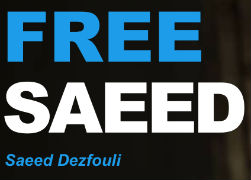Saeed has been a forensic patient at Long Bay Jail for over ten years and is a non-violent inmate who does not represent a further threat to the community. Justice Action has been fighting for many years to protect his rights and secure his release. JA is currently appealing to the High Court a costs order for $52,000 awarded against us in favour of the Attorney General as a result of fighting for his interests. The appeal relates to the 2010 decision by Justice Johnson of the Supreme Court of NSW that dismissed Saeed’s right to appeal forced injection orders from the MHRT. Justice Johnson stated in 2010 that the case should be dealt with by the MHRT, that the appeal lacked merit and that we had not listened to advice from our legal representation. Three years later the MHRT has finally acknowledged that they may in fact not have the jurisdiction to forcibly inject patients and Saeed’s name can now be published.
On the 12th of September, the MHRT was confronted with the evidence of two psychiatrists, solicitor Peter O’Brien and the legal team of the ABC. The Tribunal approved the request by the ABC to use Saeed’s name in an upcoming story. This right had been denied to him for years by the mental health legislation in NSW.
The Tribunal also for the first time openly described its practice of allowing the Health Department to do as it pleases without supervision. The previously unresolved issue of whether or not MHRT has the jurisdiction to direct the Health Department in its treatment of patients was considered for the first time. Despite the legislation clearly stating otherwise, the MHRT had stated that they only had the duty to intervene in “exceptional” cases. The Tribunal decided to allow for forced injections of medication to proceed on the 28th of September on the basis that Saeed’s case wasn’t exceptional. JA successfully filed for an injunction, which was imposed by Justice Patricia Bergin in the Equity Division of the Supreme Court on the 26th of September to halt these injections.
JA has been fighting to restore forensic patients rights to them since Saeed was arrested and begun being forcibly injected. These antipsychotics have obvious side effects. Two psychiatrists, including Dr. David S. Bell went on record in an affidavit to the Supreme Court saying:
“diabetes… with cardiac disorder indicates that the patient has developed ‘metabolic syndrome’ which shortens the life of those… b 15 years” (pg. 3)
on the medications Dr. Bell said “good reason exists to believe that the high doses damage the brain as well as producing the metabolic syndrome” (pg. 4)
“at that level it produces effects that can resemble mental illness such as schizophrenic psychosis” (pg. 4)
A recent concept has emerged in the national mental health framework that prioritises social functioning (clinical recovery) and contributing to the community through creating and living a meaningful life (personal recovery). Both of these elements come under the broader concept of recovery, and allowing mentally ill individuals to play an active role in their individual autonomy, circumstances and way of life. The movement away from the imposition of medications and mental health professionals naturally requires a progression from a professional focussed view of the mental health system to a more subjective and individually motivated process through which ‘mental illnesses’ may be dealt with.



















